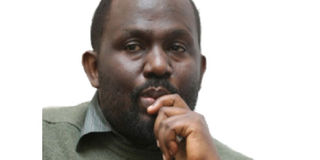Kenya election could go bad, but it’s still a good story for African politics

On August 8, Kenya votes, with opinion polls showing incumbent president Uhuru Kenyatta running neck and neck with main Opposition rival Raila Odinga.
It is a grand understatement to say that nerves are on edge. Since Kenya returned to a multiparty system in 1992, every election with an incumbent defending resulted in some violence. The pattern seems to hold so consistently, that some analysts and politics scholars argue that the main predictor for Kenya election violence is whether there is an incumbent running or not.
In 2002, Daniel arap Moi stepped down, and that vote went peacefully. Mwai Kibaki won, and in 2007 he defended his job. The country erupted in its worst political violence. In 2013, Kibaki stepped down, and though there was probably more tension than in 2007, the vote went off peacefully.
But there is more at play, especially if we look at the meaning of this vote in the wider African context.
With Africa’s highest Internet penetration among its most digitally combative citizens, and the freest press in East Africa, it allows for a level of raucous debate and on-edge ethnic sabre rattling that one only occasionally sees in Uganda in this region.
This tends to amplify the fear factor, creating greater unease. In other words, one of the things that makes Kenyan electoral politics scary, is actually good – freedom.
And, despite electoral shenanigans, the vote in Kenya is usually deadly close. In 2013, Uhuru Kenyatta won the election with 50.07 per cent – just 8,000 votes!
Those are the kinds of votes President Yoweri Museveni can afford to lose in a clerical error, and which African leaders in the more tightly controlled “developmental states”, or democratic-dictatorships where presidents still get more than 95 per cent of the vote, can afford to donate to their rivals and no one would notice. So, even if Kenya goes sideways this time, and with election officials being killed that danger is real, something critical to African democracy is still happening here.
First, after many years in which it seemed that Africa’s freerer and more noisy democracies were on the slide, failing to deliver both democracy and economic growth, which has changed.
While South Africa and Nigeria have both floundered, and Zambia is sliding back in the doghouse, Kenya and Senegal, for example, still managed to notch deliver both democracy and impressive growth.
In once-strife-torn Ivory Coast, we nevertheless saw one of the first impressive post-conflict economic recoveries in Africa that was not led by a dictatorship or semi-authoritarian regime.
What countries like Kenya have helped to do is to deliver a powerful alternative narrative to the cute authoritarian model. You can have a freewheeling, noisy, even sectarian, and democratic politics and still post economic growth.
Kenya, and recently Ghana, also masked other far-reaching steps forwards. In Ghana at the elections of last December, where the Opposition’s New Patriotic Party’s (NPP) Nana Akufo-Addo handily defeated President John Mahama and his National Democratic Congress (NDC) after one term, something unthinkable in Uganda happened.
Both the NPP and NDC released their version of the results at hourly press conferences, and no one bothered to stop them. In Uganda, to use an infamous expression from the past, you would “end up 6 feet under the ground” if you were FDC and tried something like that.
At our last elections, the police raided the FDC offices and seized copies of their returning officers’ forms. In previous elections, they raided their vote tally centres.
In Kenya, the Opposition will have its own tally centres. The electoral commission met with them to agree on the ground rules – i.e. they cannot purport to release official results.
But the Kenyan court has probably made that redundant. It ruled that the results announced at the polling centres will be final, and cannot be altered. In other words, there will be no updates at the national tally centre in Nairobi. It will be at the constituencies, end of story.
The Independent Electoral and Boundaries Commission will just announce the final thing. But as the vote comes in, it will among other things, post the forms signed by all party agents to its website, and that will primarily be what goes for updates.
You get the sense that even many Kenyans don’t appreciate how far out of the African world that is, and as a transparency process, how truly ahead it places them. And yes, I would like to assure former Uganda Electoral Commission chairman Badru Kiggundu that I am not making any of this up.
None of this ensures that there won’t be vote fiddling. However, looking five to 10 years ahead, many will see that this year was one of the defining moments for Kenyan democracy and another key inflection point for African electoral politics.
Mr Onyango-Obbo is the publisher of Africa data visualiser Africapedia.com and explainer site Roguechiefs.com.
Twitter@cobbo3




